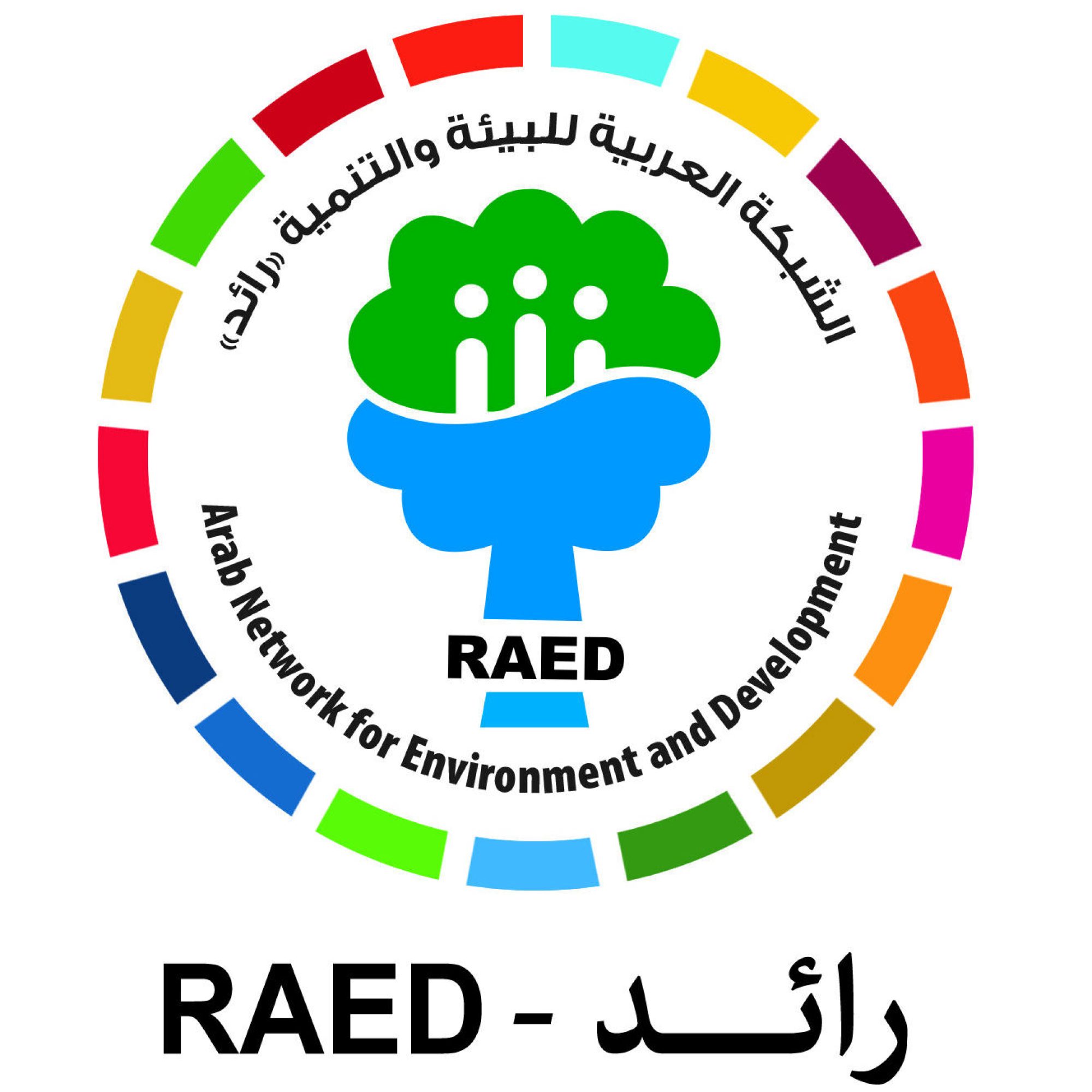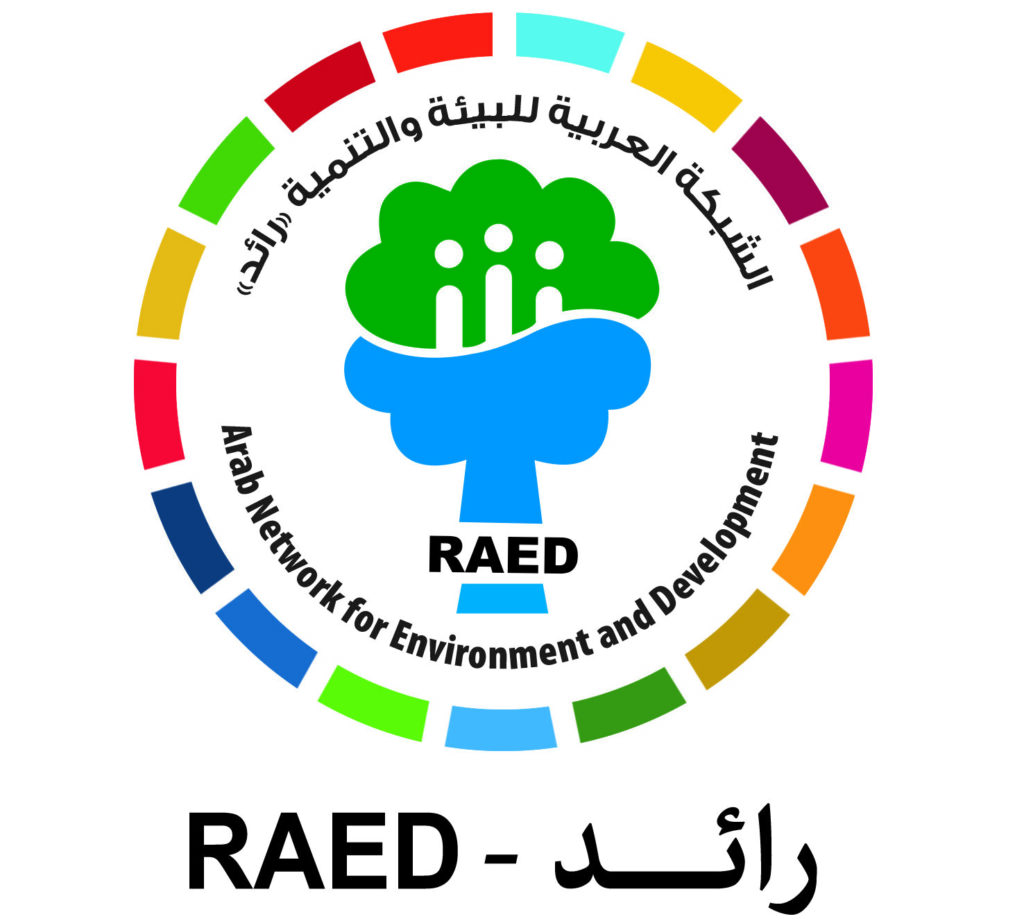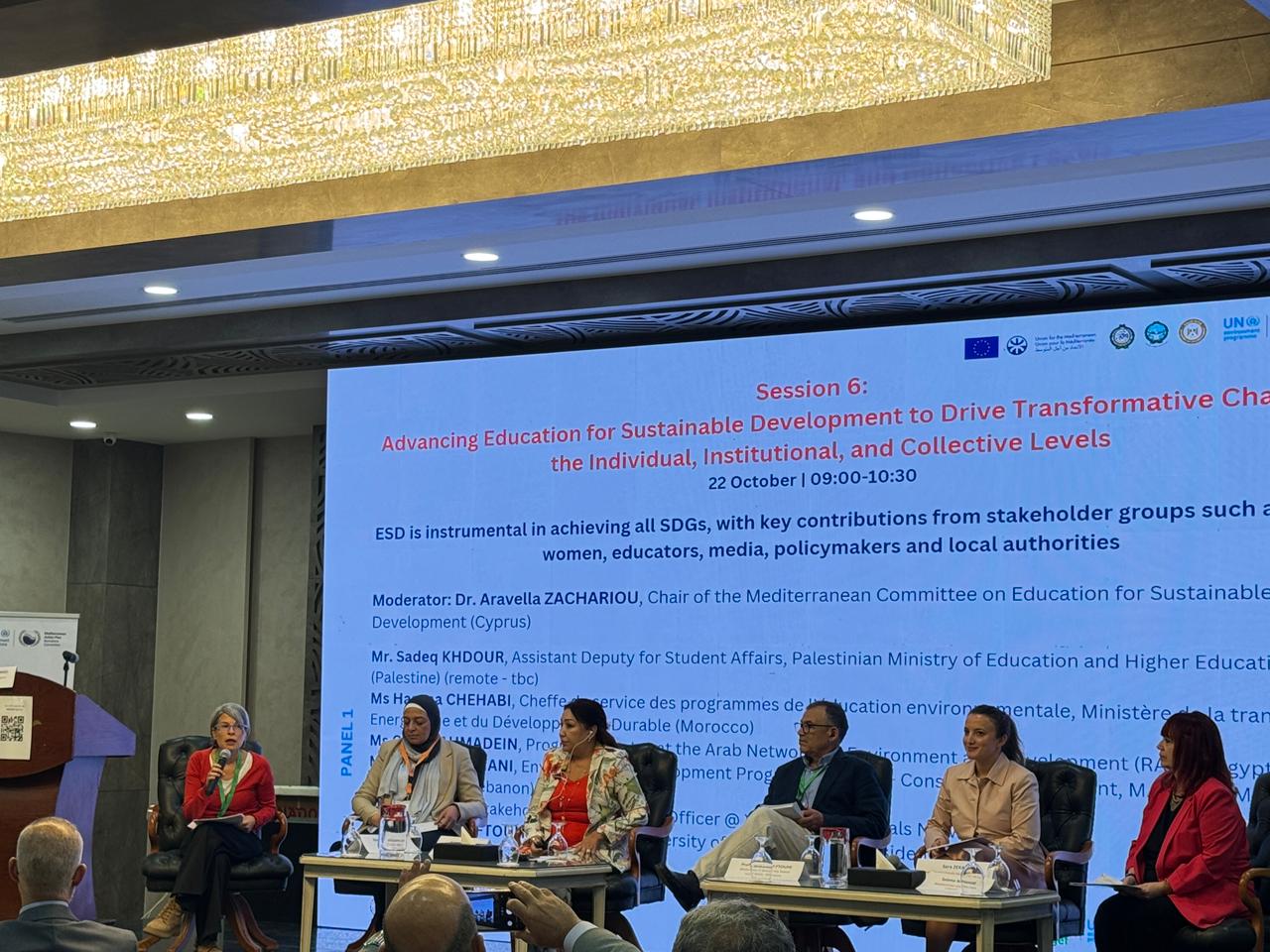Jointly Organized by the “Water and Environment Support Project (WES-BCA)” and the “Mediterranean Programme,” and Hosted by RAED, Egypt Hosts the Regional Stakeholders’ Forum on Environment and Climate in the Mediterranean Region
A Regional Platform to Unify Efforts for Sustainability and Promote Practices Capable of Facing Climate Change Impacts
In a new step that reinforces Egypt’s leading role in addressing environmental and climate-change challenges at both regional and international levels, the Arab Network for Environment and Development (RAED) hosted the Regional Stakeholders’ Forum on Environment and Climate Action in the Mediterranean, held in Cairo from 21 to 23 October 2025 under the theme: “Making the Behavioural Shift Happen.” A Gathering of Civil Society Organizations, Parliamentarians, Journalists, Women’s and Youth Organizations, and Other Actors in Cairo.”
The forum was jointly organized by the Water and Environment Support (WES-BCA) Project and the Mediterranean Programme (MedProgramme), with the support of the European Union and the UN Environment Programme / Mediterranean Action Plan (UNEP/MAP). It brought together a wide spectrum of participants—civil-society representatives, parliamentarians, journalists, women and youth leaders, experts, and academics—from across Mediterranean countries.
The forum opened with a high-level session featuring Dr. Michael Scoullos, WES-BCA Project Coordinator; Ms. Tatjana Hema, UNEP/MAP Coordinator; and Dr. Mahmoud Fathallah, Head of the Technical Secretariat of the Council of Arab Ministers for Environment.
Speakers highlighted that the Mediterranean region is warming 20 percent faster than the global average, calling for urgent behavioral and institutional changes and the adoption of sustainable practices capable of coping with the escalating impacts of climate change.
Participants underlined that the forum comes at a crucial time when the region faces compounded environmental challenges; water scarcity, degradation of natural resources and loss of biodiversity, threatening the livelihoods, food and water security of millions.
Accordingly, the forum served as a regional dialogue platform to exchange experiences and build partnerships among civil society, policymakers, youth and media initiatives. It also focused on strengthening institutional and technical capacities of environmental and climate actors, enabling non-governmental entities to engage effectively in policymaking. Discussions further explored sectoral integration through the “Water-Energy-Food-Ecosystems (WEFE) Nexus.”
The forum’s thematic sessions revolved around:
- Building a shared Mediterranean societal consensus toward sustainable lifestyles;
- Empowering civil-society organizations to influence environmental policies;
- Supporting the implementation of the Sustainable Development Goals (SDGs) and the Union for the Mediterranean’s Green Agenda; and
- Feeding the forum’s outcomes into preparations for the 24th Conference of the Parties to the Barcelona Convention (COP24) to be held in Cairo later this year.
Over three days, the forum convened representatives from international and regional institutions; including the European Union, the Union for the Mediterranean (UfM) and the League of Arab States, alongside RAED.
Session 1: Experts presented scientific evidence and emerging trends on climate-change impacts across the Mediterranean Basin, emphasizing regional cooperation, data sharing, and best-practice exchange as foundations for effective national adaptation plans.
Session 2: Focused on regional policy frameworks, with Dr. Emad Adly, RAED General Coordinator, stressing the pivotal role of civil-society organizations in implementing international environmental conventions locally and in prompting governments to adopt concrete climate actions.
Ms. Alessandra Sensi from the UfM showcased the major achievements of the Mediterranean Green Agenda, a roadmap for environmental transition in the region.
The “WEFE Nexus” session featured contributions from GWP-Med, WWF North Africa, MedCities, the European Investment Bank and MedECC, sharing successful integrated-management models for natural resources.
A session on “Education for Sustainable Development”, with Ms. Ghada Ahmadein representing RAED and experts from Palestine, Morocco, Lebanon and Algeria, underscored the need to integrate sustainability concepts into both formal and informal education systems to nurture deep-rooted environmental awareness among future generations.
The media session explored the role of journalism in shaping climate behavior, gathering journalists from Egypt, Lebanon, Jordan and North Africa who emphasized the importance of advancing environmental science communication and restoring public trust through accurate, responsible reporting.
A session titled “The Plastic Crisis”, moderated by Dr. Emad Adly and Dr. Tomais Vlachogianni, highlighted country experiences from Morocco, Tunisia, and Lebanon on implementing circular-economy policies and reducing single-use plastics. Other sessions discussed the role of parliamentarians, biodiversity conservation, women’s empowerment, and digital civic spaces as enablers for sustainability across the Mediterranean.
At the close of its three-day deliberations, the Regional Stakeholders’ Forum on Environment and Climate Action in the Mediterranean produced a set of recommendations expected to guide the region’s climate-action agenda in the coming period, notably:
- Integrating behavioral change into environmental and educational policies;
- Strengthening environmental monitoring systems and shared data platforms among member states;
- Supporting youth and community initiatives in the water, energy, and food sectors; and
- Mainstreaming gender equality across all environment and climate programs while promoting women’s leadership in environmental governance.
Hosting this important regional forum by the Arab Network for Environment and Development (RAED) reflects the trust of international and regional institutions in Egypt’s role as a hub for dialogue and collective action toward a more sustainable and equitable Mediterranean environment.
Most participants agreed that the outcomes achieved in Cairo mark a new starting point toward a shared vision for the Mediterranean’s future—one rooted in environmental awareness, cross-border cooperation, and genuine commitment to the principles of sustainable development.


